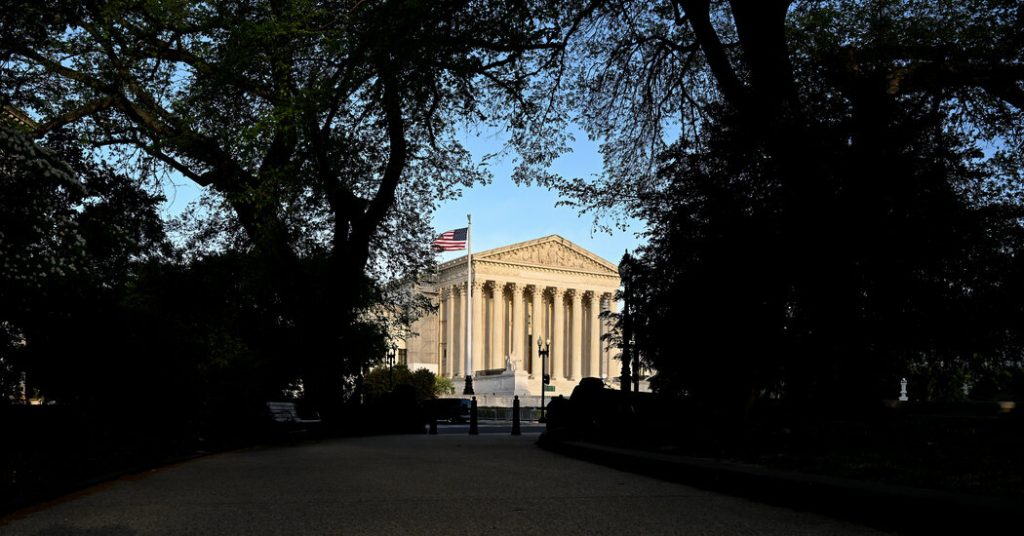Analyzing the Supreme Court’s Sidestep on Social Media Moderation Laws
The recent Supreme Court decision to remand a pair of pivotal cases back to the lower courts has reignited debates surrounding the power of social media companies to moderate content. The cases challenge state laws from Florida and Texas, which were designed to regulate how these companies manage user-generated content, particularly with claims of bias against conservative viewpoints. This article delves into the complexities of these cases, their implications for free speech, and the broader conversation about the role of social media platforms in our democratic discourse.
The Essence of the Cases
The Specifics of the State Laws
The laws in question from Florida and Texas take distinct approaches in their attempt to curtail the editorial discretion of social media platforms. Florida’s law prohibits these platforms from banning political candidates, while Texas’ law is broader, barring the removal of content based on a user’s viewpoint. These laws reflect an ongoing concern amongst some legislators about the alleged censoring of conservative voices on major social media sites.
The Supreme Court’s Decision to Remand
In a unanimous decision, the Supreme Evelin Court opted not to resolve the cases outright but instead sent them back to the lower courts for further analysis. The justices did not fully address the First Amendment challenges posed by these laws, leaving a cloud of uncertainty over the matter. Justice Elena Kagan’s majority opinion emphasized the need for lower courts to conduct thorough evaluations consistent with the principles of free speech.
Exploring the Impact on Social Media Moderation
Editorial Discretion and Free Speech
A core issue at the heart of these cases is the question of whether and how the First Amendment protects the editorial decisions made by social media companies. These platforms argue that their content moderation practices—such as deleting posts, adding warnings, or organizing feeds—are akin to editorial discretion exercised by traditional publishers, an activity protected under free speech laws.
Potential Consequences of Curtailing Moderation Powers
Limiting the ability of these platforms to moderate content raises significant concerns. Proponents of the laws argue they are necessary to ensure diverse viewpoints are not unjustly silenced. However, opponents fear such restrictions could transform platforms into havens for misinformation, hate speech, and harmful content, as moderating such content would be legally challenging.
Case Study: A Comparative Approach
An analysis of how similar laws have played out in other jurisdictions can provide valuable insights. For instance, Germany’s NetzDG law, which compels platforms to remove "clearly illegal" content swiftly or face hefty fines, has sparked debate over its impact on free speech and its efficacy in combating harmful content without overly censoring legitimate discourse.
Legal Precedents and Theoretical Frameworks
Legal scholars and practitioners closely watch how the Supreme Court navigates the complex interplay between free speech rights and the regulatory oversight of digital platforms. Previous rulings, such as those involving the protections offered by Section 230 of the Communications Decency Act, serve as critical reference points in these discussions.
Frequently Asked Questions
Q: What are the main legal arguments against the Florida and Texas laws?
A: The primary legal argument is that these laws infringe upon the First Amendment rights of social media companies by limiting their editorial discretion in moderating content.
Q: How do these cases affect the everyday user of social media?
A: Depending on the outcome, users might see significant changes in how content is moderated, potentially leading to either a reduction in harmful content or, conversely, an increase in misinformation and hate speech.
Q: Can these state laws affect users outside these states?
A: Yes, because of the global nature of social media platforms, changes implemented to comply with laws in one jurisdiction can have wide-reaching effects, impacting users nationwide and even globally.
Q: What’s the next step in the legal process for these cases?
A: The cases will return to the lower courts for more comprehensive analysis. These courts must examine the First Amendment challenges in light of the Supreme Court’s guidance, a process that could take considerable time.
Conclusion
The Supreme Court’s decision to sidestep a comprehensive ruling on these critical issues leaves many questions unanswered about the future of content moderation on social media platforms. While the court’s unanimity in remanding the cases underscores the complexity of balancing free speech rights with the need for responsible content moderation, it also highlights the ongoing legal and societal debates surrounding the power of these digital platforms. As the lower courts take up these cases once again, all eyes will be on the evolving legal standards that shape our digital discourse.
